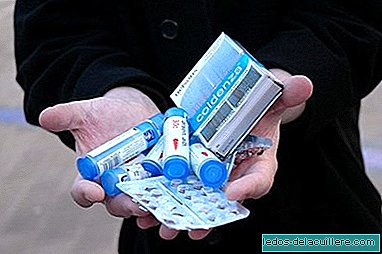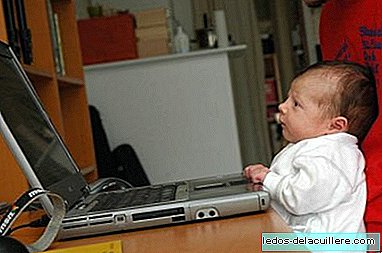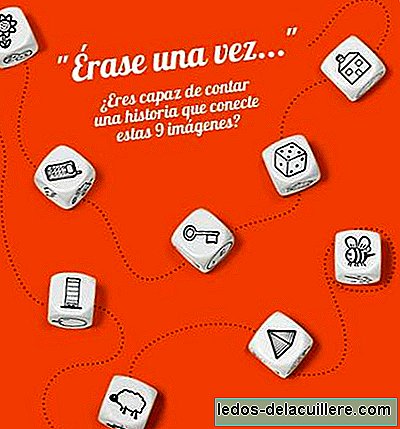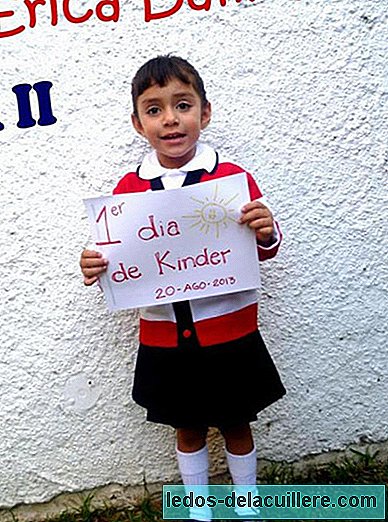
After several days talking about Homeopathy for babies and adults dealing with various related issues I think it was necessary to talk about one of the most serious issues: why homeopathic preparations or homeopathic medicines are sold if they do nothing.
Homeopathic medicines are regulated by REAL DECREE 1344/2007, of October 11, which regulates the pharmacovigilance of medicines for human use. Then I tell you what this Royal Decree says and what I think about it.
As can be read in Article 55, homeopathic medicines can be with or without an approved therapeutic indication. Let's see them:
Homeopathic medicines with approved therapeutic indication
They are industrial homeopathic medicines, intended to cure a certain disease. These medications, if we follow Hahnemann's treaties, should not be considered homeopathic because the normal thing in homeopathy is to make a preparation for a specific person, based on the symptoms that he suffers without taking into account the disease at all. That is to say, that this Royal Decree allows to call “homeopathic medicines” to medicines that really are not (although the problem is not of the legislator, but of the consumer who is taking cat by hare).
These medications, to be approved, must go through the same assumptions as the medicines of scientific medicine. These assumptions can be read here and it is easy to see that some of them can hardly be fulfilled by homeopathy.
For example, they should indicate the composition and quantity of the components that are in the medicine and in homeopathy there is no active ingredient in many occasions, but that the memory of this has been transferred to the solvent (this for which it is created, of course ) or, in the case of pills, the sugar and lactose that make up the tablet. That is, if the labels of the homeopathic balls tell the truth, which they usually do, the most common is to read “85% sucrose, 15% lactose” (it is not necessary to be a mathematician to know that there is no percentage left for anything else).
Too The results of the clinical tests have to be presented and, in short, of the studies that show that the medicine works. As we know that there are no studies that show that homeopathy works, they cannot meet this requirement either.
Homeopathic medicines without approved therapeutic indication
The Homeopathic medicines without therapeutic indication are those that would follow the homeopathic postulates, because they are those medications that do not cure a disease, but can be used to treat symptoms.
In the labeling there can be no indication ("this cures the flu", "for headache", "for infant colic") and the administration must be oral or external.
The minimum dilution degree has to be 2 CH, which is equivalent to one part of mother tincture per 10,000 of solvent, a concentration that is known in the Royal Decree as "dilution degree that guarantees the safety of the drug", which in Christian, for me, comes to say "do nothing". In addition, in case you carry some active substance that can be found in scientific medicine (pharmacy medicine of a lifetime) It may not take more than one hundredth of the lowest dose that can be found in a prescription drug..
That is to say, if a laboratory gives you a chance to put amoxicillin (antibiotic) in one of these solutions, you will have to put one hundredth of the medicine that contains less amoxicillin on the market. This, in Christian, comes to say again "that it is a medicine that does nothing."
So why are homeopathic medicines marketed?
My most logical answer to this question is: it's a mystery.
According to the Royal Decree commented, medicines with therapeutic specificity will be verified “Within ten calendar days from the submission of the application”. Then "It will verify that it meets the requirements, and the applicant will be notified of its admission to process with an indication of the applicable procedure and the identification of the file, as well as the deadline for notification of the resolution."
In case you do not qualify “The applicant will be required to remedy the deficiencies within a maximum period of ten calendar days, indicating that if he does not do so, his application will be filed”, being unable to sell said medication.
The medicines without therapeutic specificity, on the other hand, have a maximum resolution period of 6 months. If at that time a request is not accepted, it will be understood as dismissed.
So, if for some it is 10 days and for the others it is 6 months, how can it be that Boiron homeopathic medicines have been commercialized for 16 years, pending resolution?
Looks like I'm making something up, right? Well, no. On the same page of Boiron, a multinational company that is making gold (like real pharmaceuticals) at the cost of deceiving people with homeopathy, whose section in Spain grows from year to year (in ten years it has gone from having 76 workers manufacturing illusions to have 168, in 2009), the following can be read:
The homeopathic medicines that we currently sell were submitted for registration in 1995 as contemplated in RD 2208/1994. As of today, all of them are pending evaluation by the Spanish Medicines Agency, and therefore without definitive registration.
Take off you, what do I wear
Some say that homeopathy does not matter because it fights with the large pharmaceutical multinationals, as if homeopathic remedies were made clandestinely and given away to heal the entire world, away from those drugs that do so much damage to the body.
Well, the multinational Boiron, which has more than 4,000 workers worldwide and representation in many countries is growing at a rate of 10-15% annually.
According to the figures presented by the same multinational (see here) in the year 2009 billed 526 million euros. To compare Esteve a little, he billed 944 million euros the same year, Almirall 925 million, Ferrer 681 and the great Sanofi Aventis billed 29,306 million euros. Come on, if we consider that they are 2009 data we could say that Now, probably, you are already billing the same or more than one of the pharmaceutical companies mentioned, of which they sell medications with side effects (and primary).
The day someone wants to regularize this ...
Well, I do not understand. What I do believe is that the day someone opens a folder and reads "homeopathic medicines" is going to roll, because when the inspector sees that there is nothing with feet or head in there, the bargain is over (unless mentioned inspector decides to invest in something that gives a lot of money and turn a blind eye, which apparently is what is currently being done).
To be continue
On Monday I will talk about homeopathic medicines that have nothing homeopathic. That is, of those with therapeutic specificity, they work the same as those of normal medicine and carry ingredients with very low dilutions, both, which work like phytotherapy (read Colikind, Stodal, ExpectoDHU, ...).












